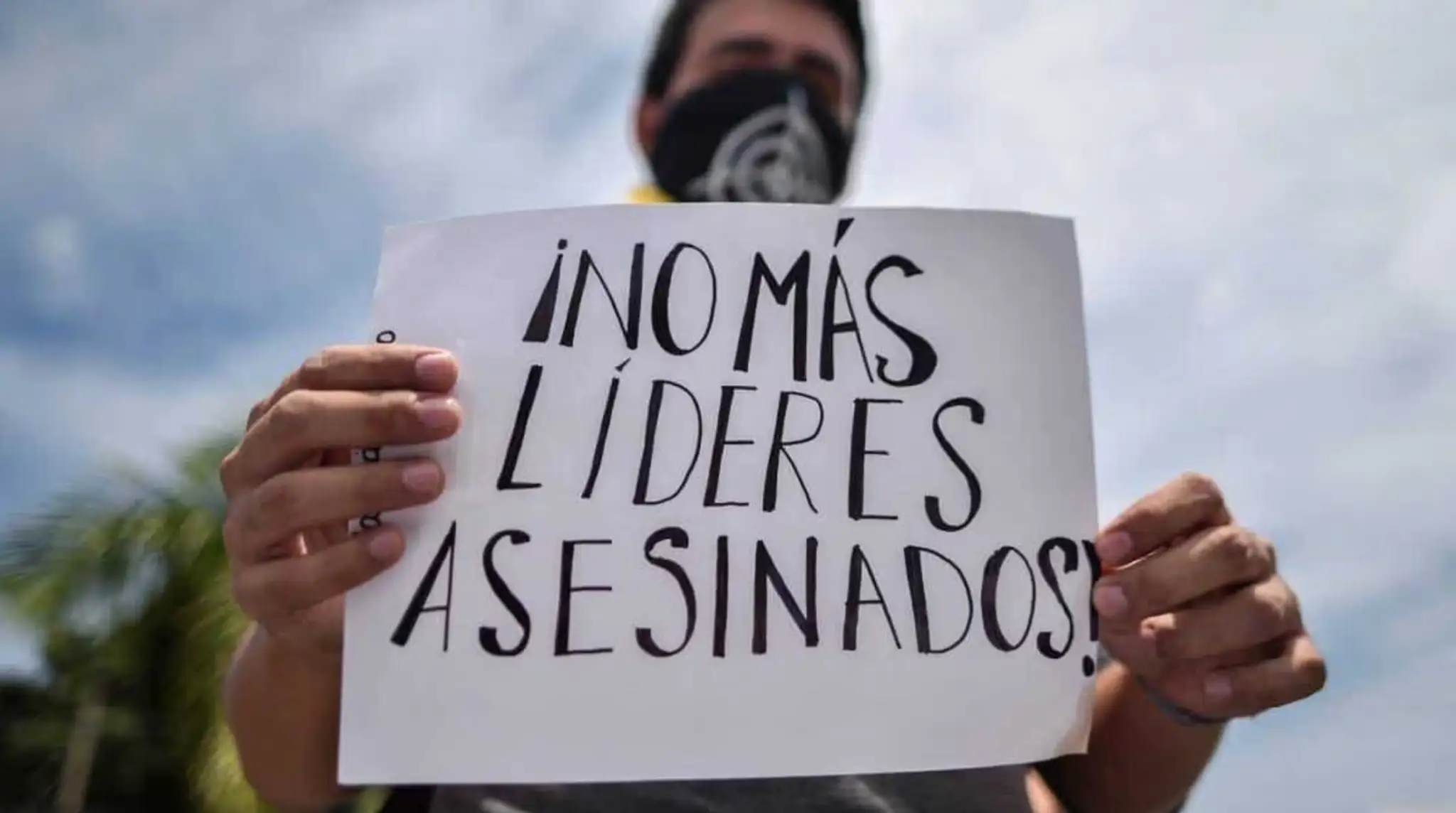Latin America is the most dangerous region on the planet for human rights defenders. In 2022, Colombia, Mexico, Brazil, and Honduras were the countries with the highest murder rates. According to the Colombian Ombudsman’s Office and after the signing of the peace agreement in 2016, disinformation (both territorially and in terms of social networks) has been one of the causes of this fateful increase, due to the social and political stigmatization of human rights defenders.
The stigmatization of social leaders and their populations is not a recent event in the Colombian conflict. Unfortunately, massacres such as those in Segovia and Remedios were marked by this phenomenon. Peasant and indigenous populations were stigmatized as opponents by armed individuals for defending their territories and claiming their rights. As a result, they became military targets, suffering threats, displacement, and, in the worst cases, assassinations and disappearances.
Disinformation (especially fake news) that was disseminated on the internet during the 2016 peace plebiscite led to the fragmentation of the country into political extremes. This polarization has affected human rights defenders, but not exclusively those leading environmental causes. Unlike in the past, nowadays social networks have facilitated an extensive production of inaccurate or false information that is reproduced in society through rumors and biased opinions that inadvertently endanger the lives of these populations.
The search for reliable information
Fact-checking, also known as verification journalism, has seen unprecedented growth in Latin America. Journalists in this area have found it necessary to develop a set of skills and tools to quell the harmful effects of disinformation by detecting errors, incomplete information, and fake news in the media and social networks. Recently, the COVID-19 pandemic led to the regional and joint creation of specialized strategies such as Latam Chequea to limit infodemia, i.e., hoaxes and rumors surrounding the virus.
Colombian journalism has also been actively fighting against disinformation. Although its actions thematically coincide with countries in the region, it has found it necessary to create specialized strategies, given the nature of the country’s internal political conflicts such as the armed conflict, the peace negotiations between the government and the FARC guerrillas, the 2016 plebiscite, the truth commission, political speeches during election periods and the stigmatization of human rights defenders.
As a result, different projects have been created that seek to mitigate the harmful effects of hoaxes focused on these issues for Colombian audiences. Some examples are initiatives such as ColombiaCheck, Proyecto Desintoxicar, Linterna Verde and the recently created VERIFICO. The latter seeks to exclusively monitor the dissemination of disinformation in social networks and media against women human rights defenders.
One more verification platform?
VERIFICO is a website developed by the digital native media Verdad Abierta and the international non-profit organization Protection International. Usually, these types of platforms develop a classification system for inaccurate or false information that pedagogically aims to show users the most common types of errors and inaccuracies. In turn, they have a section in which they expand on the reason for this categorization and provide an explanation that verifies or disproves such content.
This project developed eight criteria for classifying stigmatizing content: political attack, decontextualization, deception, discrimination, irony, defamation, gender, and ethnicity, which are not similar to those of other platforms. Unlike theirs, which essentially seek to verify hoaxes on different topics, VERIFICO aims to contrast information to prevent and quell the potential increase of assassinations of populations and social leaders in Colombia.
The cases addressed in this platform on stigmatization and disinformation are, above all, of political and opinion leaders in the country, who have posted mostly on Twitter. Despite the fact that this social network is used by only 4% of the country’s population, this content manages to affect human rights defenders, as their messages are amplified and influence the virtual debate and the Colombian media.
To be or not to be
VERIFICO, as a project that aims to reduce the harmful effects of disinformation against human rights defenders, is certainly problematic in nature, because the more cases of stigmatization that VERIFICO verifies, unfortunately, the more leaders and populations are at risk.
While this platform works hand in hand with the affected communities, the challenge is to make its message reach all sectors of society, especially those who have been persuaded by this type of content and share it believing it to be real, without realizing that stigmatization and disinformation kill.
*Translated from Spanish by Janaína Ruviaro da Silva











